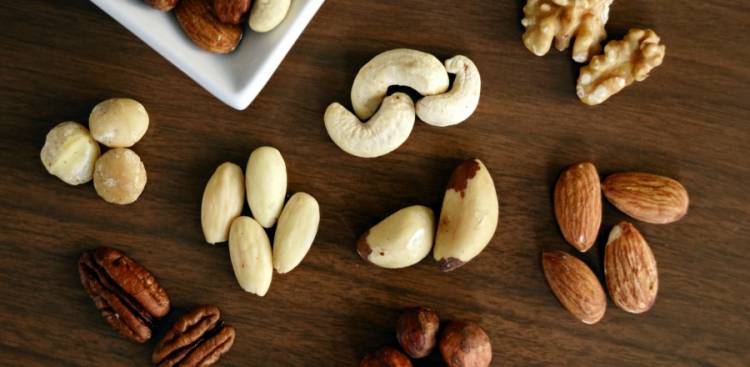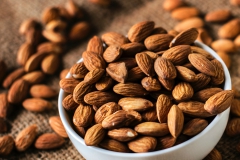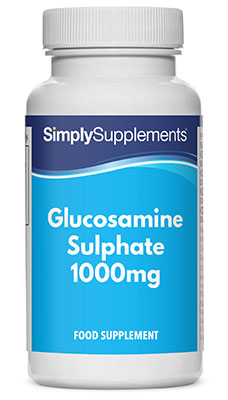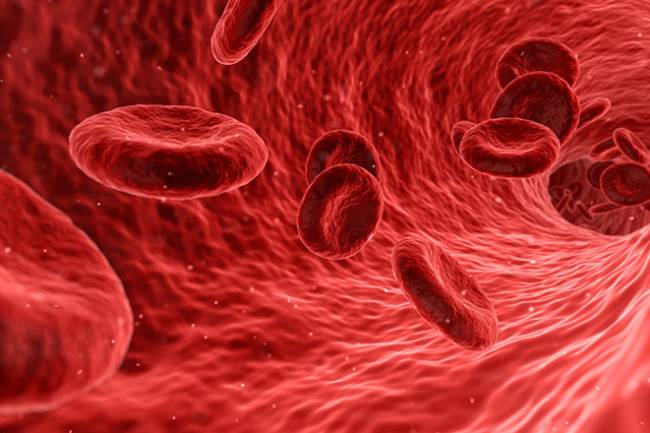The Health Benefits of Eating Nuts

Most of us appreciate that nuts can make a healthier snack than more common options like crisps or chocolate. The question, however, is what nuts actually do for you that make them so beneficial?
The General Benefits of Eating Nuts
High Levels of Healthy Omega 3 Fats
Not so long ago fat was demonized for its role in encouraging weight gain. Fortunately, in recent years we have all become more comfortable with the idea that not all fats are bad. Quite the opposite in fact; some types of fat can be positively beneficial for our health. It is these “healthy fats” which can be found in generous amounts within many varieties of nut. For example, most nuts are naturally high in unsaturated fats; both monounsaturated and polyunsaturated fats. These types of fats are known to control inflammation, lower cholesterol, support cell health and to help the body absorb fat-soluble vitamins and other nutrients.
If this weren't impressive enough certain nuts also contain a special polyunsaturated fat known as alpha-linolenic acid (or ALA for short). ALA is an essential omega 3 fat and is linked to good general health, helping to support areas such as the heart, brain, eyes, mood and inflammation.
Rich in Protein
 Although nuts are mainly a source of fat, they also boast appreciable amounts of protein. Protein has a plethora of key roles within the body, with the most important being the growth and repair of tissue such as muscles and bones. Protein is also an important aspect of weight management, as a high protein intake increases our metabolic rate, and keeps us feeling fuller for longer. A higher protein intake is also advisable for older adults seeking to decrease muscle wastage and maintain strength with age.
Although nuts are mainly a source of fat, they also boast appreciable amounts of protein. Protein has a plethora of key roles within the body, with the most important being the growth and repair of tissue such as muscles and bones. Protein is also an important aspect of weight management, as a high protein intake increases our metabolic rate, and keeps us feeling fuller for longer. A higher protein intake is also advisable for older adults seeking to decrease muscle wastage and maintain strength with age.
A Great Source of Fibre
It has been well publicised in the UK that most of us are only getting around half of the recommended 30g of fibre each day. With certain types of nuts providing around 5g of fibre per serving, they are consequently a fabulous way to keep our digestive health in check.
L-Arginine for Circulatory Health
Nuts are also particularly high in an amino acid known as L-arginine. In the body, arginine is used to create nitric oxide, a signalling molecule which dilates blood vessels. This in turn both increases blood flow and decreases blood pressure, helping to support a healthy circulatory system.
Plant Sterols for Healthy Cholesterol
Certain nuts provide an impressive volume of plant sterols. Sterols are molecules that very closely resemble the cholesterol found in our body. As a result they compete with the cholesterol in our body for absorption into the bloodstream. When plant sterol levels increase, so cholesterol levels in the blood can fall, offering significant health benefits. Research has shown that a diet rich in plant sterols (2.5-3g per day) can reduce cholesterol levels by up to 13% in under a month.
Health Benefits of Specific Nuts
Now that we've looked at the more general benefits of nuts let's take a closer look at some specific nuts, and the benefits of consuming them…
Almonds
 A 1oz serving of almonds provides almost 4g of fibre, and over a third of your daily vitamin E requirement. Vitamin E is a powerful antioxidant that helps to protect our cells from damage and decreases the oxidation of cholesterol. Oxidised cholesterol is the type that is most likely to build up in the walls of blood vessels causing atherosclerosis. A regular dose of vitamin E can therefore help to protect the body from this narrowing of the arteries; an issue which is linked to serious medical issues like heart attacks.
A 1oz serving of almonds provides almost 4g of fibre, and over a third of your daily vitamin E requirement. Vitamin E is a powerful antioxidant that helps to protect our cells from damage and decreases the oxidation of cholesterol. Oxidised cholesterol is the type that is most likely to build up in the walls of blood vessels causing atherosclerosis. A regular dose of vitamin E can therefore help to protect the body from this narrowing of the arteries; an issue which is linked to serious medical issues like heart attacks.
Less well-known are several other nutrients found in almonds; namely biotin, copper and manganese. Biotin is often known as the “beauty vitamin” because it supports healthy hair and skin. Meanwhile manganese and copper are important minerals for joint health, thanks to their role in cartilage function and connective tissue strength.
Brazil Nuts
Brazil nuts are famous for being a great source of selenium. Selenium is an essential mineral that has an integral role in the synthesis of glutathione, often known to scientists as the “master antioxidant”. Selenium also helps thyroid and immune function together with sperm health. From the latest National Diet and Nutrition Survey, selenium insufficiency is surprisingly common. Thankfully, we only need two Brazil nuts per day to obtain all the selenium we need.
Pecans
Pecan nuts are one of the world's richest sources of heart-healthy monounsaturated fat, providing 12g per ounce. The cardiovascular benefits of pecans are further increased thanks to the high levels of thiamine they offer. Also known as vitamin B1, thiamine provides the heart with the energy it needs to beat over 100,000 times per day. Like most of the other members of the nut family, pecans also provide an appreciable amount of the minerals copper, manganese, zinc and magnesium. In fact, the only essential vitamins and minerals that are absent from pecans are vitamin A, B12 and sodium.
Walnuts
 Walnuts are famous for their ALA content. Thanks to this ingredient a diet that is rich in walnuts has been shown to decrease cholesterol and the risk of excess blood clotting. Walnuts are also a great source of molybdenum; a lesser-known mineral that plays an important role in the synthesis of some amino acids used in connective tissue formation. To this end, walnuts support the joints, hair, skin and nails.
Walnuts are famous for their ALA content. Thanks to this ingredient a diet that is rich in walnuts has been shown to decrease cholesterol and the risk of excess blood clotting. Walnuts are also a great source of molybdenum; a lesser-known mineral that plays an important role in the synthesis of some amino acids used in connective tissue formation. To this end, walnuts support the joints, hair, skin and nails.
Pistachios
Pistachios possess qualities that set them apart from other nuts. Firstly, they are high in vitamin B6, a nutrient that is involved in many bodily functions, from red blood cell formation to balancing hormone levels and reducing tiredness and fatigue. Pistachios are also relatively high in phosphorous, a mineral that is essential to strong bones and teeth. Lastly pistachios are also the only nut to contain appreciable levels of lutein and zeaxanthin, two pigments that promote healthy vision.
Macadamias
Providing slightly more fat than pecans, macadamias are probably the best source of monounsaturated fat, providing almost 17g per ounce. Similar to pecans, macadamias are particularly rich in vitamin B1. Aside from heart health, B1 supports the nervous system, energy levels and psychological health.
Hazelnuts
Hazelnuts are a brilliant source of monounsaturated fat and essential micronutrients. Of note are vitamins B1, B6, B9 (folate), E and K. Hazelnuts boast a wide range of minerals but are particularly high in manganese, with an ounce providing almost 90% of the NRV.
What Does the Research Tell Us?
 Now that we have covered the general benefits of nuts it is only right to ask if the scientific research supports this view. What better way to start than by looking at cardiovascular health. First and foremost, nuts are renowned for their powerful effect on cholesterol levels. Looking at the evidence in its entirety, regular nut consumption decreases LDL (‘bad' cholesterol), increases HDL (‘good' cholesterol) and lowers triglyceride levels – a type of fat in the blood. Fittingly, high LDL & triglycerides, and low HDL are all risk factors for developing heart disease.
Now that we have covered the general benefits of nuts it is only right to ask if the scientific research supports this view. What better way to start than by looking at cardiovascular health. First and foremost, nuts are renowned for their powerful effect on cholesterol levels. Looking at the evidence in its entirety, regular nut consumption decreases LDL (‘bad' cholesterol), increases HDL (‘good' cholesterol) and lowers triglyceride levels – a type of fat in the blood. Fittingly, high LDL & triglycerides, and low HDL are all risk factors for developing heart disease.
In addition to this, a plethora of studies have shown that nuts have powerful antioxidant qualities that can protect cholesterol from damage. Damaged cholesterol is the type most likely to stick to the walls of blood vessels. What is fascinating is that just consuming one portion of pecans has been shown to decrease the amount of oxidised cholesterol in the blood by up to a third! The health-related impact of eating nuts has been extensively confirmed by researchers.
A study involving over 7000 people found that those consuming 30g of nuts per day slashed their chance of suffering from a heart attack or stroke or dying from a heart related illness by nearly a third when compared to the group following a low fat diet. So it appears that if you are concerned about the health of your heart, you should certainly make nuts a part of your daily diet.
Despite it being accepted that nuts are good for the heart, it was once thought that regularly eating nuts would cause weight gain. This seems quite logical as nuts are very energy dense, with some types providing over 200kcal per ounce. It may come as a surprise however that numerous research studies have shown that regular consumption of nuts is actually associated with a lower bodyweight and a reduced risk of type 2 diabetes.
Nutrition experts believe that the protein and fibre content of nuts mean that they are a satiating snack, keeping us full for a lengthy period of time. As obesity and type 2 diabetes (together known as ‘diabesity') are omnipresent in the developed world, these results are meaningful. Moving away from cardiovascular and metabolic health specifically, nuts are also great for general health thanks to the array of vitamins and minerals they contain. Eye health, immunity, strong muscles and bones together with healthy hair, skin and nails are merely some of the aspects that can benefit from such nutrition.
What Is a Good Serving Size of Nuts?
To receive the full benefit of eating nuts it is important to take a dosage backed by scientific evidence. Throughout this article, we have made reference to an ounce of nuts, or 28g. This is a good amount to aim for at least twice a week. Some researchers recommend up to an ounce and a half (42g) at least 4 times per week, but going anywhere within that range is likely to provide all the health benefits we have discussed throughout this article.
Summary
Hopefully after reading this article, you now know not just that nuts are good for you, but why. 30-40g of nuts a few times per week seems to be all you need to significantly improve your health. Finally, eating a variety of nuts will ensure you get a broad spectrum of vitamins, minerals and specialist natural compounds for best benefit.
Sources:
https://www.mayoclinic.org/diseases-conditions/heart-disease/in-depth/nuts/art-20046635
https://www.bbcgoodfood.com/howto/guide/health-benefits-nuts
https://www.ncbi.nlm.nih.gov/pubmed/20833992
https://www.ncbi.nlm.nih.gov/pubmed/21106921
https://www.ncbi.nlm.nih.gov/pubmed/21106921
https://www.ncbi.nlm.nih.gov/pubmed/24898229
https://www.ncbi.nlm.nih.gov/pubmed/19321561
https://academic.oup.com/jn/article/138/9/1752S/4750851
https://www.nejm.org/doi/full/10.1056/nejmoa1200303

 Matt
Matt 

























